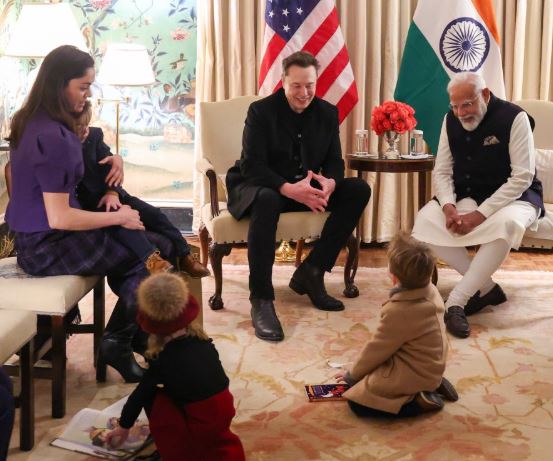Washington, DC – The US Department of Government Efficiency (DOGE), headed by billionaire Elon Musk, has unveiled a series of significant expenditure cuts aimed at curbing wasteful spending of US taxpayer dollars. Among the cancellations is $21 million previously allocated for “voter turnout in India,” part of a broader list of discontinued programs announced via a post on X on Saturday.
The DOGE, established last month under the leadership of Musk—who was appointed by US President Donald Trump—has been tasked with enhancing governance efficiency and eliminating unnecessary expenditures. “US taxpayer dollars were going to be spent on the following items, all of which have been cancelled…” the department stated in its announcement.
The cuts include $486 million in grants to the “Consortium for Elections and Political Process Strengthening,” which encompassed $22 million for an “inclusive and participatory political process” in Moldova and the aforementioned $21 million for voter turnout initiatives in India. No additional details regarding the specific nature of these programs were provided in the post.
This development follows Indian Prime Minister Narendra Modi’s recent visit to the United States, where he engaged in discussions with both President Trump and Musk. During the visit, Musk, the CEO of SpaceX, met with Modi and his family, including three of Musk’s children. Their conversations reportedly covered opportunities in space, mobility, technology, and energy, as well as shared insights on governance practices in India and the US.
Other notable cancellations outlined by DOGE include $29 million for “strengthening the political landscape in Bangladesh,” $20 million for “fiscal federalism” in Nepal, and $19 million for “biodiversity conservation” in the Himalayan region. Additional cuts target a $10 million grant for “Mozambique voluntary medical male circumcision,” $2.3 million for “strengthening independent voices in Cambodia,” $32 million to the Prague Civil Society Centre, $40 million for a “gender equality and women empowerment hub,” and $14 million for “improving public procurement” in Serbia. The list also includes $47 million allocated for “improving learning outcomes in Asia.”
The announcement has sparked discussions about the implications of these cuts on international programs previously supported by US funding. Further details on the decision-making process and future plans of the DOGE are yet to be disclosed.
Key Points:
Leadership and Announcement: The US Department of Government Efficiency (DOGE), led by Elon Musk, announced expenditure cuts on Saturday via a post on X. Musk was appointed by President Donald Trump last month to head DOGE, with a mission to improve governance and eliminate wasteful spending.
Cut to Indian Voter Turnout Funding: Among the cuts is $21 million previously allocated for “voter turnout in India,” part of a $486 million grant to the “Consortium for Elections and Political Process Strengthening.”
Other Cancelled Programs: The cuts also include $22 million for political processes in Moldova, $29 million for Bangladesh’s political landscape, $20 million for fiscal federalism in Nepal, $19 million for biodiversity in Nepal, $10 million for medical programs in Mozambique, $2.3 million for independent voices in Cambodia, $32 million to the Prague Civil Society Centre, $40 million for a gender equality hub, $14 million for public procurement in Serbia, and $47 million for learning outcomes in Asia.
Context of Modi’s Visit: The announcement follows Prime Minister Narendra Modi’s recent US visit, during which he met with Trump and Musk. Discussions with Musk included space, technology, energy, and governance, with Musk meeting Modi’s family, including three of his children.
Purpose of DOGE: DOGE aims to curb wasteful spending of US taxpayer dollars, with the cancelled programs listed as examples of expenditures deemed unnecessary.



